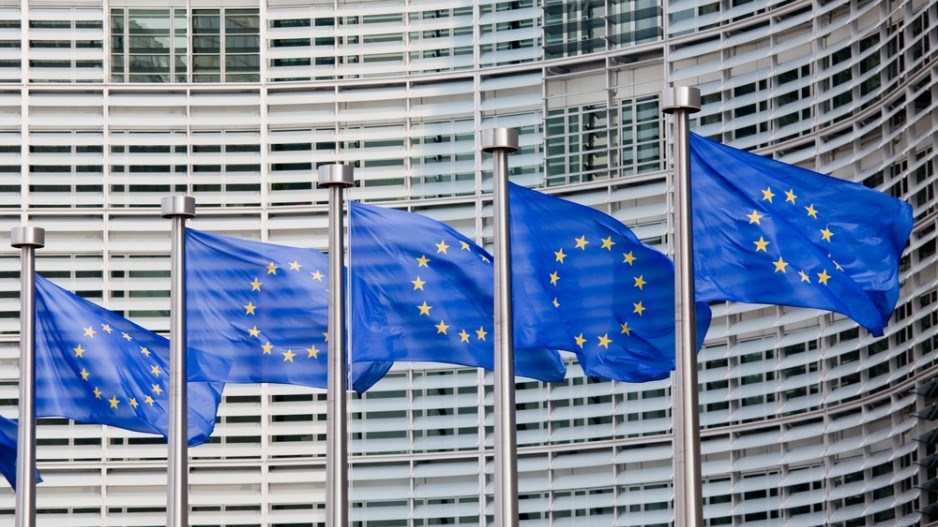While he was United Kingdom’s home secretary from 2001 to 2004, David Blunkett and his French counterpart, Nicolas Sarkozy, agreed to expand customs pre-clearance on French soil. It helped streamline tourism and trade on both sides of the English Channel.
“I believe very strongly that agreement cannot hold if the U.K. came out of the European Union [EU],” Blunkett, a 2015 addition to the House of Lords, told Business in Vancouver. “The consequences of that in both security and immigration terms would be considerable.”
Blunkett served in the Labour government under former prime minister Tony Blair and is now a professor at London’s University of Law. He was in Vancouver for a June 15 lecture at University Canada West, making the case to a North American audience about why U.K. should vote June 23 to stay in the EU.
Lord Blunkett opposed U.K. membership in 1975, but he now says it’s vital for its future.
“Were we to [leave the EU], people would see that an individual country of 64 million people off the mainland coast of Europe would not have anything like the negotiating power of 560 million people joining together,” he said.
He sat down with BIV on June 14.
Q: Do you think over the years, Britain has given away too much sovereignty … to be part of something bigger?
A: If you join any kind of international agreement or alliance, you’re bound to cede some small amount of your autonomy in order to gain greater influence and, in some cases, power, to be able to exercise that influence over the agreements that are reached, the international balance that takes place when large free trade areas or agreements in relation to security take place. I think if we’ve conceded anything, it was not playing a big enough part in the shaping of the EU.

Q: In 2008, the overarching story was the economy. In 2015 it was the migration crisis in Europe. What role can Britain play inside and outside the EU?
A: What is power? Where does power lie? It lies very substantially with very considerable developments in globalization with large companies from Google and Facebook through to Apple and the big mining corporations. It lies with large countries like China and India with populations of 1.2 billion and growing. It lies with alliances, whether on trade and finance, and those alliances allow us to counterweight those different sources of power. The same applies with dealing with people movements: 19 million on the move outside the borders of their country, mainly because of displacement, because of conflict and division. You can only deal with those on a global basis. EU, working together, can make a much bigger contribution than any individual one of the 28 nations.
Q: There are concerns about economic migration. In London, with the investment from Russia. Here in Vancouver … it’s investment from China. … It’s distorting the real estate market.
A: It’s also economic imperialism. There is a very good case to be made that the sub-prime mortgage crisis in the U.S., which was a driving force for the global financial meltdown, was also due to very substantial amounts of Chinese money available because it’s not spendable and economically usable in China.
The same thing is happening in terms of the property market and land purchase in many parts of the world, including Africa and the developing world, as well as the developed world.
Facing China with this and having rational policies that ensure people do not buy property and land that is not used but held as an investment makes sense. We can do better on that on a global basis than we can as individual countries. Understanding it and not being frightened by it is very important and, again, that requires a rational international approach.
Q: There are a lot of expats [in B.C.]; some of them will be voting. What’s your message to them?
A: If you have children in the U.K. and they want a future which is about international trade, it’s about international alliances and securing our well-being, economically and in terms of countering terrorism, then we’ve got to do that together. And above all if you’ve got youngsters under the age of 30, persuade them to vote, because the biggest danger in the European referendum in the U.K. is that older people will substantially vote and younger people will feel it’s nothing to do with them and will not vote. All the opinion polls demonstrate that, yet the future of those young people for the next 50 years and beyond is going to be determined on the 23rd of June.
@BIVnews




